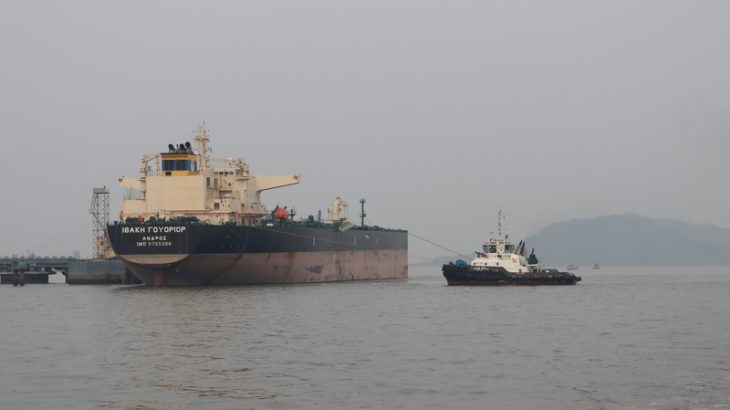Russian oil exports that fund the Kremlin’s war machine are finally slowing down. Refineries in India – Moscow’s second biggest client after China, since the invasion of Ukraine in 2022 – will no longer accept oil tankers owned by the Russian state company Sovcomflot PJSC, due to the risk of sanctions, reports Bloomberg.
Since October, the US has increased sanctions on the fleet of tankers carrying Russian crude. Many oil tankers have not been used since then, and increasing amounts of Russian crude oil are floating in the oceans, according to Kpler analysts, according to Agerpres.
Together, these developments will gradually lead to a decline in Russia’s oil revenues, a key policy objective of the United States and its allies.
Despite the sanctions, Russia continued to export huge amounts of oil.
Although at this stage there are no expectations of drastic supply cuts, the question is how far Western authorities will go with tightening the screw, given that the price of a barrel of crude oil is heading for $90 and President Joe Biden has started an election campaign where voters are still affected by inflation.
“The pressure on Russian oil exports, especially to India, is increasing. We are at the stage where the frictions related to the sanctions are becoming extremely evident,” said Richard Bronze, director at the consulting company Energy Aspects Ltd.
Bloomberg data shows that Russian oil tankers subject to US sanctions are no longer carrying out shipments. The Kremlin is hurt by India’s decision – an important trading ally during the war – to avoid Russian oil tankers. At the same time, Ukraine began bombing Russian refineries, although the decision was not well received.
“We certainly see the increasing pressure of US sanctions on both exports and Russian crude oil, at a time when the US is unable to send more aid to Ukraine and Russia seems to be gaining ground on the front,” says Greg Brew, analyst at Eurasia Group in New York.
State-owned company Sovcomflot transported about a fifth of all Russian crude oil shipments last year. The figure appeared to be falling even before Indian refiners announced they were no longer accepting oil tankers.
“We expect that oil buyers will be less willing to do business with Sovcomflot than in the past,” a US Treasury spokesman said, adding that the measures should not affect the oil market as Russia would maintain discounts on sales crude oil.
Sovcomflot officials admitted this week that the company’s operations are being affected by the sanctions.
“Targeting Sovcomflot represents a significant tightening of US sanctions against Russia. It will not solve the problem of evasion, but it will increase transport costs and discounts for the sale of Russian crude oil,” said Janis Kluge, from the German Institute for International and Security Affairs in Berlin.
Even so, Russia can still call on the so-called “shadow fleet”, set up immediately after the 2022 invasion, with older ships without adequate insurance and unclear ownership. According to some estimates, there are 600 such ships.
Delivery costs for Russian oil are huge. It costs about $14.50 a barrel to ship cargo from the Baltic Sea to China, according to Argus Media data. More than half of the amount is generated by sanctions.
